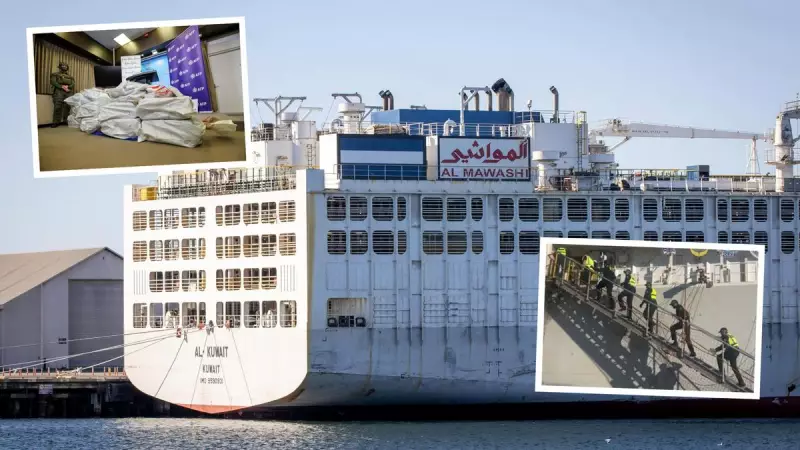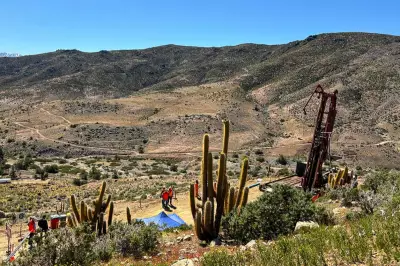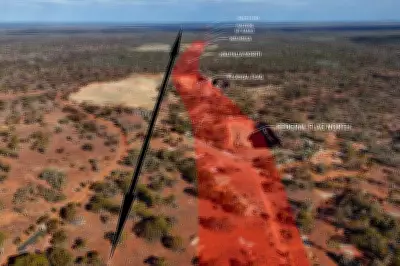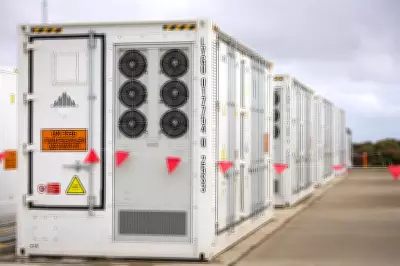
In a stunning development that has rocked Australia's agricultural export industry, authorities have uncovered a massive cocaine shipment valued at nearly $170 million aboard a live sheep export vessel in Perth. The shocking discovery aboard the Al Kuwait has triggered a major investigation into how such a substantial quantity of illegal drugs could have been smuggled onto the commercial ship.
The Maritime Drug Bust That Shocked Authorities
Australian Federal Police confirmed they discovered approximately 300 kilograms of cocaine hidden on the livestock carrier during a routine inspection at Fremantle Port. The street value of the seized narcotics is estimated at a staggering $170 million, making it one of Western Australia's most significant drug interdictions in recent years.
The vessel, operated by Dubai-based company Al Kuwait Livestock Transport, had arrived in Perth to load approximately 56,000 sheep and cattle for export to the Middle East. Instead, it became the centerpiece of a major criminal investigation that has raised serious questions about security protocols in Australia's vital export industry.
Australian Border Force officers made the initial discovery during a standard cargo examination on February 13, 2024. The drugs were reportedly concealed within the ship's structure in a sophisticated hiding spot that required specialist knowledge of the vessel's layout.
Investigation and Industry Response
The ship's owners have expressed complete cooperation with Australian authorities, stating they are "fully investigating how this substance allegedly came to be on the vessel." In an official statement, the company emphasized that the crew had no knowledge of the illicit cargo and are assisting police with their inquiries.
Western Australia's Agriculture Minister, Jackie Jarvis, addressed the situation, acknowledging the serious nature of the incident while reassuring the public about the integrity of the state's live export system. "This is obviously a very concerning incident," Minister Jarvis stated, "but it's important to note that our biosecurity and export control systems have worked effectively to detect this illegal activity."
The discovery has sent shockwaves through Australia's live export industry, which has worked diligently to improve its reputation following past controversies regarding animal welfare. Industry representatives were quick to distance legitimate operators from the criminal activity, emphasizing that the drug placement appeared to be an external criminal operation rather than anything connected to standard export procedures.
Ongoing Investigations and Future Implications
Australian Federal Police have launched a comprehensive investigation to determine the origin of the drugs and identify the criminal syndicate responsible. Investigators are exploring several theories, including whether the narcotics were loaded during previous port calls in Southeast Asia or through other means.
The Al Kuwait has been temporarily detained at Fremantle Port while forensic examinations continue. Authorities are conducting thorough searches of the entire vessel and reviewing shipping manifests and port access records from the ship's recent journeys.
This incident highlights the ongoing challenge of maritime drug smuggling in Australian waters and the sophisticated methods employed by international criminal organizations. The substantial quantity of cocaine suggests involvement of a major trafficking network with the capability to compromise commercial shipping operations.
Industry experts note that while drug seizures on container ships occasionally occur, the targeting of a livestock vessel represents an unusual development in maritime crime patterns. The case has prompted renewed calls for enhanced security screening of all vessels entering Australian ports, regardless of their primary cargo.
As the investigation continues, Australian authorities have emphasized their commitment to protecting the country's borders from illegal drug importation while maintaining the smooth operation of legitimate trade and export industries that are vital to the national economy.





